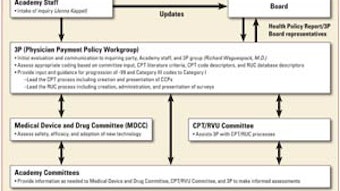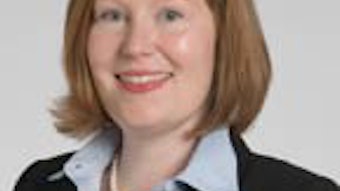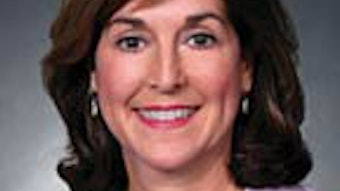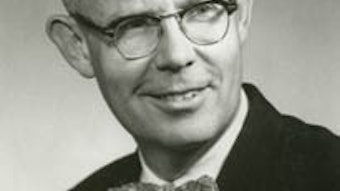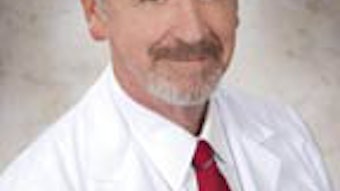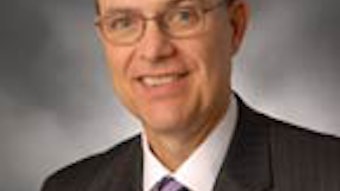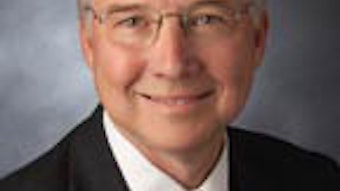Global Campaign against Hearing Loss Gains New WHO Champion, New Worldwide Observance
James E. Saunders, MD, Co-chair, Coalition for Global Hearing Health The hearing impaired people of the world have a new champion in Geneva, Switzerland. This January, the World Health Organization (WHO) appointed Shelly K. Chadha, MD, as the new medical officer for the Prevention of Deafness and Hearing Impairment (PDHI). More than 285 million people worldwide have debilitating hearing loss (a pure-tone average greater than 40 decibels), accounting for more than 4 percent of the world’s population. In addition, the majority of these people live in developing countries where services are scarce or nonexistent. Despite these staggering statistics, the WHO PDHI position—vacant for almost two years—was in jeopardy of being permanently eliminated. In response to this crisis, a consortium of organizations interested in hearing loss gathered to salvage this office. Thanks to a generous donation from Cochlear Co, the AAO-HNSF joined the consortium and contributed funds to reinstate the WHO Office for Deafness. Other consortium members include the International Society of Audiology, the International Federation of Oto-Rhino-Laryngological Societies (IFOS), the Christian Blind Mission, IMPACT, and the Hearing Conservation Council. The consortium not only helped raise funds to support the WHO office for its first two years, but also worked with the WHO as an advisory group to define the job description and goals of the office. The consortium unanimously decided that the WHO PDHI office is critical to addressing hearing loss as a global health issue and the highest priority for hearing loss prevention worldwide is to educate and train primary care providers in identifying, managing, and preventing hearing loss. The consortium enthusiastically endorsed Dr. Chadha for this position and for good reason. An otolaryngologist from India, Dr. Chadha has been active in developing public health programs for hearing loss in India and Southeast Asia. She was a key resource in developing and implementing the National Program for Prevention and Control of Deafness in India and contributed to the development of SOUND HEARING 2030 for the region. In addition to multiple publications and presentations, she developed training materials in primary ear and hearing care and hearing loss awareness and infant hearing screening in India and Asia. Thanks to grant support from AAO-HNSF Humanitarian Fund, Dr. Chadha was the guest of honor at the 2011 meeting of the Coalition for Global Hearing Health (CGHH), a new multidisciplinary group committed to hearing loss issues in developing countries. The CGHH meeting took place at the House Research Institute in Los Angeles, immediately prior to the Academy meeting. In her inspiring keynote address, Dr. Chadha emphasized the need for creative and collaborative solutions to this daunting problem and encouraged professionals to work together on grassroots efforts and to advocate for improved public policy. Upon her arrival in Geneva, Dr. Chadha went to shape these priority goals into a specific work plan. As a result, the WHO will roll out a major campaign to train primary providers in primary ear and hearing care during the next two years. Training manuals for this project were developed in multiple languages through the combined efforts of the two previous WHO hearing loss officers, Professor Andrew Smith, MD, and Young-Ah Ku, MD, and other contributors. The current program will take this effort to the next level by partnering with NGOs and governments to implement comprehensive training programs in a few pilot countries. This work will focus on otitis media, congenital and childhood hearing loss, presbycusis, noise-induced hearing loss, and ototoxicity. The consortium will serve in an advisory/supportive role in these efforts, working to gain support from member states and raise funds to maintain the WHO office beyond the first two years. One of Dr. Chadha’s initial activities was to promote International Ear and Hearing Day on March 3, through the use of social media. The observance began in Asia and spread around the world. When the WHO social media team publicized this day through a tweeted message, it received a tremendous response. This type of grassroots awareness campaign through social media is a great example of how we can use today’s technology to get the message out. Other activities in observance of International Ear and Hearing Day have raised awareness in Asia and elsewhere in the world. These are exciting times for efforts to reduce the global burden of hearing loss and otolaryngologists like Dr. Chadha are vital to this work. Along with multispecialty groups like the consortium to support the WHO Prevention of Deafness Office and the CGHH, otolaryngologists are working with other professionals to address this crucial problem. And we are beginning to see signs of progress. If you would like to become involved with this movement or want to learn more about programs to reduce the global burden of hearing loss, visit the WHO website at http://www.who.int/pbd/deafness/en/ or the CGHH website, http://cfghh.squarespace.com/, or email james.saunders@hitchcock.org.
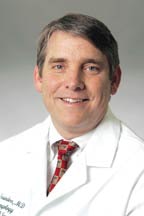
The hearing impaired people of the world have a new champion in Geneva, Switzerland. This January, the World Health Organization (WHO) appointed Shelly K. Chadha, MD, as the new medical officer for the Prevention of Deafness and Hearing Impairment (PDHI).
More than 285 million people worldwide have debilitating hearing loss (a pure-tone average greater than 40 decibels), accounting for more than 4 percent of the world’s population. In addition, the majority of these people live in developing countries where services are scarce or nonexistent. Despite these staggering statistics, the WHO PDHI position—vacant for almost two years—was in jeopardy of being permanently eliminated.
In response to this crisis, a consortium of organizations interested in hearing loss gathered to salvage this office. Thanks to a generous donation from Cochlear Co, the AAO-HNSF joined the consortium and contributed funds to reinstate the WHO Office for Deafness. Other consortium members include the International Society of Audiology, the International Federation of Oto-Rhino-Laryngological Societies (IFOS), the Christian Blind Mission, IMPACT, and the Hearing Conservation Council.
The consortium not only helped raise funds to support the WHO office for its first two years, but also worked with the WHO as an advisory group to define the job description and goals of the office. The consortium unanimously decided that the WHO PDHI office is critical to addressing hearing loss as a global health issue and the highest priority for hearing loss prevention worldwide is to educate and train primary care providers in identifying, managing, and preventing hearing loss.
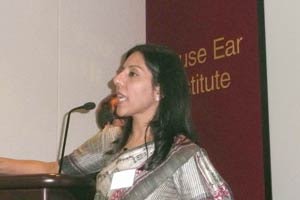
In addition to multiple publications and presentations, she developed training materials in primary ear and hearing care and hearing loss awareness and infant hearing screening in India and Asia. Thanks to grant support from AAO-HNSF Humanitarian Fund, Dr. Chadha was the guest of honor at the 2011 meeting of the Coalition for Global Hearing Health (CGHH), a new multidisciplinary group committed to hearing loss issues in developing countries.
The CGHH meeting took place at the House Research Institute in Los Angeles, immediately prior to the Academy meeting. In her inspiring keynote address, Dr. Chadha emphasized the need for creative and collaborative solutions to this daunting problem and encouraged professionals to work together on grassroots efforts and to advocate for improved public policy.
Upon her arrival in Geneva, Dr. Chadha went to shape these priority goals into a specific work plan. As a result, the WHO will roll out a major campaign to train primary providers in primary ear and hearing care during the next two years.
Training manuals for this project were developed in multiple languages through the combined efforts of the two previous WHO hearing loss officers, Professor Andrew Smith, MD, and Young-Ah Ku, MD, and other contributors. The current program will take this effort to the next level by partnering with NGOs and governments to implement comprehensive training programs in a few pilot countries.
This work will focus on otitis media, congenital and childhood hearing loss, presbycusis, noise-induced hearing loss, and ototoxicity. The consortium will serve in an advisory/supportive role in these efforts, working to gain support from member states and raise funds to maintain the WHO office beyond the first two years.
 International Ear and Hearing Day observance in Bangladesh, March 3, 2012.
International Ear and Hearing Day observance in Bangladesh, March 3, 2012.One of Dr. Chadha’s initial activities was to promote International Ear and Hearing Day on March 3, through the use of social media. The observance began in Asia and spread around the world. When the WHO social media team publicized this day through a tweeted message, it received a tremendous response. This type of grassroots awareness campaign through social media is a great example of how we can use today’s technology to get the message out. Other activities in observance of International Ear and Hearing Day have raised awareness in Asia and elsewhere in the world.
These are exciting times for efforts to reduce the global burden of hearing loss and otolaryngologists like Dr. Chadha are vital to this work. Along with multispecialty groups like the consortium to support the WHO Prevention of Deafness Office and the CGHH, otolaryngologists are working with other professionals to address this crucial problem. And we are beginning to see signs of progress.
If you would like to become involved with this movement or want to learn more about programs to reduce the global burden of hearing loss, visit the WHO website at http://www.who.int/pbd/deafness/en/ or the CGHH website, http://cfghh.squarespace.com/, or email james.saunders@hitchcock.org.
